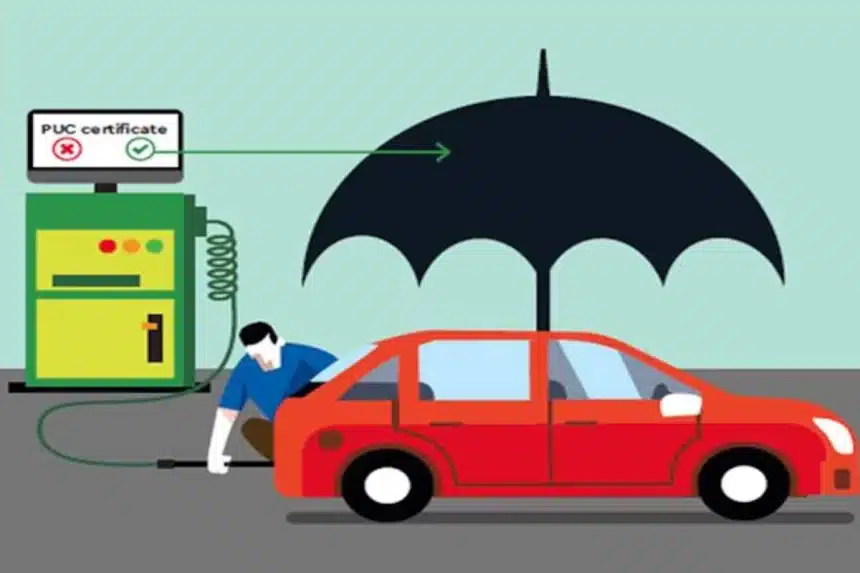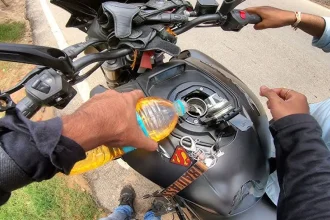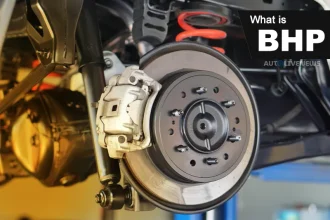When you purchase a new car, there are various legal obligations you must fulfill. One of the most important is obtaining a Pollution Under Control (PUC) certificate, which serves as proof that your vehicle adheres to the government’s emission standards. While the question, “Is PUC required for a new car?” might seem straightforward, the answer has some nuances. In this blog, we will delve into the necessity of a PUC certificate for new cars and the related aspects that every car owner should be aware of.
What is PUC?

Before diving into whether a PUC certificate is required for a new car, it’s essential to understand what a PUC certificate entails. The Pollution Under Control (PUC) certificate is a mandatory document issued by authorized testing centers, indicating that a vehicle’s emissions are within the permissible limits as defined by the government. The test checks for harmful emissions such as carbon monoxide, nitrogen oxides, and hydrocarbons.
Is PUC Required for a New Car?
The short answer is No, PUC is not immediately required for a new car. When you purchase a new car, it comes with a PUC certificate that is valid for the first year from the date of purchase. This initial validity period ensures that your new car complies with emission norms and is environmentally safe for road use.
However, after this one-year period, it becomes mandatory to get your car tested and obtain a PUC certificate regularly. Failing to do so can result in fines and penalties. Therefore, while you don’t need to worry about a PUC certificate right away with a new car, you will need to ensure it’s renewed annually.
PUC Certificate Validity for a New Car

As mentioned earlier, when you purchase a new car, it automatically comes with a PUC certificate valid for one year. After the first year, you must have your car tested for emissions and renew the PUC certificate. The renewal process involves taking your car to an authorized PUC center where the emissions are tested, and a new certificate is issued based on the vehicle’s compliance.
The renewed PUC certificate is usually valid for six months, after which it must be re-checked. The test is quick and inexpensive, and it’s a critical part of maintaining your vehicle’s environmental compliance.
Importance of a PUC Certificate
Even though a new car doesn’t require an immediate PUC check, it’s important to understand why having a valid PUC certificate is crucial. The primary reason for mandating a PUC certificate is to reduce vehicular pollution, which contributes significantly to environmental degradation and health issues.
By regularly obtaining a PUC certificate, you are ensuring that your vehicle’s emissions are within the permissible limits. This helps reduce the overall carbon footprint and makes you a responsible vehicle owner. Moreover, a valid PUC certificate is a mandatory document to carry while driving, and not having it can result in hefty fines.
Validity of a PUC Certificate
For new cars, the initial PUC certificate issued by the manufacturer is valid for one year. After this period, you need to have your car tested for emissions every six months to renew the PUC certificate. Each time you renew it, the new certificate is valid for six months, unless the vehicle’s emissions exceed the prescribed limits, in which case, repairs are required to bring the emissions down before a new certificate can be issued.
Maintaining the validity of your PUC certificate is essential to avoid fines and ensure that your vehicle is compliant with environmental regulations.
Penalties and Risks of Not Having a PUC Certificate
Driving without a valid PUC certificate can lead to serious consequences. Here are some of the risks associated with not having a PUC certificate for your vehicle:
- Fines: The most immediate consequence of not having a valid PUC certificate is the fine imposed by traffic authorities. In India, fines for driving without a PUC certificate range from ₹1,000 for the first offense to ₹10,000 for repeated violations.
- Vehicle Seizure: In some cases, authorities may seize the vehicle if it is found to be operating without a valid PUC certificate. This can lead to further complications, including additional fines and impound fees.
- Pollution Penalty: If your vehicle is found to be emitting pollutants beyond the permissible limit, authorities can levy additional penalties, and you will be required to get the vehicle repaired to comply with emission norms.
- Insurance Implications: Driving without a valid PUC certificate can also impact your car insurance. In case of an accident, the absence of a valid PUC certificate may affect your claim process, potentially leading to rejection of claims.
How to Get a PUC Certificate
The process of obtaining a PUC certificate is straightforward, and there are many authorized centers where you can get your vehicle tested. Here’s a step-by-step guide to getting a PUC certificate for your car:
- Find an Authorized PUC Center: Look for a PUC testing center authorized by your local transport authority. These centers are usually found at fuel stations or service centers.
- Get the Car Tested: The PUC center will test the emissions from your car using a device that measures the levels of pollutants being released. The process takes a few minutes.
- Receive the Certificate: If your vehicle passes the test, you will be issued a PUC certificate that is valid for six months. The certificate contains details such as the vehicle’s registration number, the emission levels, and the validity period.
- Renew Regularly: It’s important to renew the PUC certificate every six months to stay compliant with emission norms.
Conclusion: Is PUC Required for a New Car?
In conclusion, PUC is not required for a new car during the first year, as it comes with an initial certificate. However, after the first year, you must regularly renew the PUC certificate every six months to ensure that your vehicle complies with environmental norms. Failing to do so can lead to fines, penalties, and other complications.
Keeping your vehicle’s emissions in check through regular PUC tests not only helps you avoid legal trouble but also contributes to a cleaner, healthier environment. Therefore, while the answer to “Is PUC required for a new car?” is initially no, it’s important to remember that staying proactive about renewals is essential.
Frequently Asked Questions ( FAQs)
Is PUC required for a new car?
No, it is not required for the first year of a new car, as the vehicle comes with an initial PUC certificate.
How long is the PUC certificate valid for a new car?
The PUC certificate for a new car is valid for one year from the date of purchase.
What happens if I don’t have a PUC certificate?
You can be fined, and repeated offenses may lead to harsher penalties or vehicle seizure.
How often do I need to renew the PUC certificate?
After the first year, you need to renew the PUC certificate every six months.
What is the cost of obtaining a PUC certificate?
The cost varies but is generally affordable, ranging from ₹60 to ₹100, depending on the type of vehicle.
Can I renew my PUC certificate online?
Currently, the emission test must be done in person, but you can find the nearest PUC center online.
What are the fines for driving without a PUC certificate?
Fines start from ₹1,000 for the first offense and can go up to ₹10,000 for repeated offenses.
Where can I get a PUC certificate?
You can get a PUC certificate at any authorized PUC testing center, usually found at fuel stations.
Does every vehicle need a PUC certificate?
Yes, every vehicle, including cars, motorcycles, and commercial vehicles, needs a valid PUC certificate.
Can my insurance claim be affected by not having a PUC certificate?
Yes, the absence of a valid PUC certificate can impact your car insurance claim.















